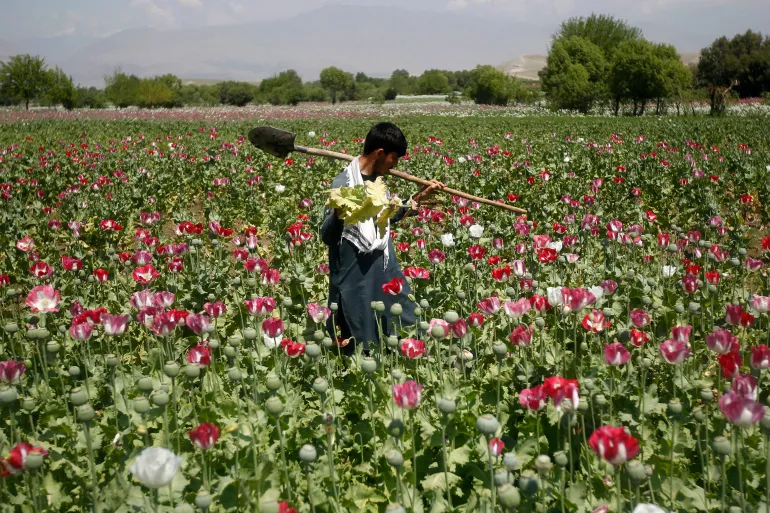Afghanistan’s Taliban asserted on Tuesday that their efforts to halt illegal drug production in the country have yielded substantial results, despite facing ongoing criticism for inadequate global support. Taliban Foreign Minister Amir Khan Muttaqi, speaking at a national conference in Kabul, highlighted their country’s historical role as the world’s largest opium-poppy producer, a trade that fueled addiction worldwide.
“The illegal drug trade has been terminated. Those addicted now require medical assistance, while farmers seek sustainable livelihoods and jobs,” Muttaqi stated during his televised address.
Since banning opium poppy cultivation in April 2022, the Taliban has significantly reduced Afghanistan’s opium production, according to the United Nations Office on Drugs and Crime (UNODC), impacting the nation’s economy and necessitating urgent humanitarian aid.
Muttaqi lamented the lack of international support, criticizing sanctions imposed on Afghan trade and banking sectors. He also highlighted Afghanistan’s vulnerability to climate change, exacerbated by extreme weather patterns causing widespread devastation and food insecurity.
Despite their efforts in countering terrorism and establishing nationwide peace, the Taliban’s strict regulations on women’s rights have isolated them internationally. This isolation has hindered economic development and deprived Afghanistan of vital foreign aid.
At a recent international conference in Doha, concerns over women’s rights in Afghanistan were prominently discussed alongside investment opportunities and ongoing efforts to combat illegal drug production. The UN has expressed deep concern over restrictions on Afghan women and girls, emphasizing their essential role in the country’s social and economic progress.
The Taliban, however, defends its policies as aligned with Islamic law and local customs, asserting that criticism amounts to interference in Afghan internal affairs. They acknowledge economic challenges since assuming power, with sectors like finance facing collapse and small businesses becoming crucial for sustaining the economy.
Afghanistan’s Taliban continues to navigate internal and external challenges, seeking recognition and cooperation while managing the aftermath of years of conflict and natural disasters.


